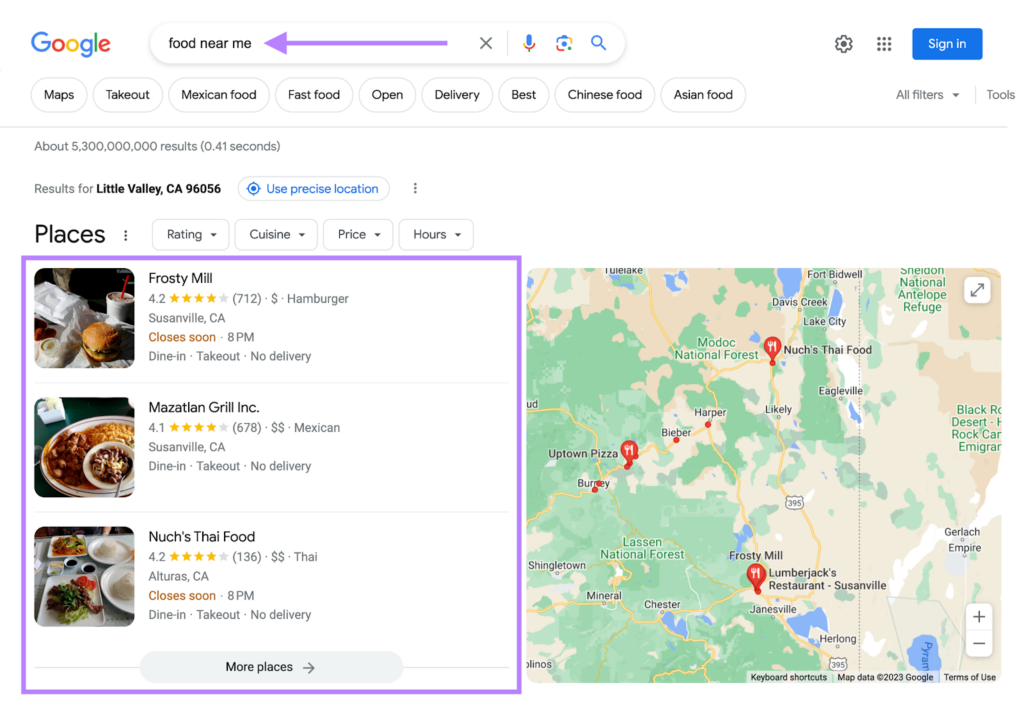In the competitive world of startups, having a robust online presence can make a significant difference in your success. Search Engine Optimization (SEO) is a critical component of digital marketing that can drive organic traffic to your website and increase your brand visibility. However, many startups overlook SEO or struggle to implement it effectively due to limited resources or expertise. In this guide, we’ll explore essential SEO strategies tailored for startups to help boost your online visibility and attract more customers. Enjoy this list of SEO Strategies For Startups!

1. Keyword Research and Targeting
Start by conducting thorough keyword research to identify the terms and phrases your target audience is searching for. Use tools like Google Keyword Planner, SEMrush, or Ahrefs to discover relevant keywords with decent search volume and low competition. Focus on long-tail keywords that are specific to your niche and product offerings. Incorporate these keywords naturally into your website content, including landing pages, blog posts, and product descriptions.
Long-tail keywords in SEO are longer, more specific phrases that users typically search for when they are closer to making a purchase decision or seeking very specific information. These keywords often have lower search volumes compared to broader, more generic keywords, but they can be highly valuable for attracting targeted traffic to your website. Here are some examples of long-tail keywords:
“Best vegan restaurants in San Francisco”
This keyword specifies a particular location and niche (vegan restaurants), targeting users looking for specific dining options in a specific city.
“How to train a Labrador puppy to sit”
This keyword is specific and targets users seeking detailed information on a particular topic (dog training) related to a specific breed (Labrador).
“Affordable graphic design courses online”
This keyword targets users looking for specific information about online courses related to graphic design and emphasizes affordability.
“Women’s organic skincare products for sensitive skin”
This long-tail keyword targets users looking for skincare products specifically designed for women with sensitive skin and who prefer organic options.
“Best budget-friendly DSLR cameras for beginners”
This keyword is specific and targets users who are beginner photographers looking for affordable DSLR cameras.
“What are the symptoms of gluten intolerance in children”
This long-tail keyword targets users seeking specific information about gluten intolerance symptoms in children.
“Local coffee shops with outdoor seating near Times Square”
This keyword specifies a location (Times Square) and a specific amenity (outdoor seating) that users are interested in.
“How to fix a leaking faucet without calling a plumber”
This keyword addresses users looking for DIY solutions for a common household problem (leaking faucet).
“Best ergonomic office chairs for lower back pain under $200”
This keyword targets users looking for specific office chairs that address a particular need (lower back pain) within a specific budget range.
“Organic gardening tips for beginners in small spaces”
This long-tail keyword targets users interested in organic gardening but specifically tailored for those with limited space.
2. Optimize Your Website Structure
A well-structured website not only enhances user experience but also improves SEO. Ensure your website is mobile-friendly, as Google prioritizes mobile-responsive sites in its search rankings. Create a clear hierarchy with intuitive navigation to help users and search engines easily navigate your site. Optimize page loading speed by compressing images, utilizing browser caching, and minimizing HTTP requests.
Image resizing is an important aspect of SEO (Search Engine Optimization) as it can impact website performance, user experience, and ultimately, search engine rankings. Here are some popular image resizing tools that can help optimize images for SEO:
Make sure to maintain your image aspect ratio, optimize the file size, use descriptive file names, and add alt text!
3. Create High-Quality Content
Content is king in the world of SEO. Develop a content strategy that aligns with your business goals and resonates with your target audience. Publish blog posts, articles, guides, and videos that provide value, solve problems, and answer common questions related to your industry. Aim for original, engaging, and shareable content that encourages backlinks from reputable websites—this can significantly boost your SEO rankings. Tools like SurferSEO make it easy to research what type of content will perform best!
4. Local SEO Optimization
If your startup targets a local audience, optimize your website for local searches. Claim your Google My Business listing and ensure your NAP (Name, Address, Phone Number) details are consistent across all online platforms. Encourage customers to leave positive reviews, as they can enhance your local SEO rankings. Additionally, leverage local keywords in your headings and meta tags to attract nearby customers.
5. Build Quality Backlinks
Backlinks are crucial for SEO success. Focus on acquiring high-quality backlinks from authoritative websites within your industry. Guest posting, influencer collaborations, and participation in industry forums are effective ways to build backlinks organically. Avoid spammy link-building practices, as they can negatively impact your website’s reputation and SEO rankings. As always, creating engaging and informative content is the best way to acquire backlinks- you need to create content that others will want to share!
6. Monitor Performance and Analytics
Regularly monitor your website’s performance using tools like Google Analytics and Google Search Console. Analyze key metrics such as organic traffic, bounce rate, click-through rate (CTR), and keyword rankings. Use this data to identify areas for improvement and adjust your SEO strategy accordingly. A data-driven approach will help you make informed decisions and maximize your SEO efforts.
Keep track of the pages that bring your website the most organic traffic- these are your highest performing organic search pages. It’s important to keep these pages up to date in order to maintain your search position.
7. Stay Updated with SEO Trends
SEO algorithms and best practices evolve continuously. Stay updated with the latest SEO trends and algorithm changes to ensure your startup remains competitive in search rankings. Follow reputable SEO blogs, attend webinars, and participate in industry events to stay ahead of the curve.
AI & SEO: Embracing Innovation
In the era of AI, particularly with the advent of tools like ChatGPT, there’s a natural question that arises: Is SEO (Search Engine Optimization) becoming obsolete? The answer is quite the opposite—AI is revolutionizing SEO practices, making them more efficient and effective than ever before.
AI-driven tools like ChatGPT have transformed content creation for SEO. These tools can generate high-quality, optimized content quickly and efficiently. By leveraging natural language processing capabilities, ChatGPT understands user intent and can craft content tailored to specific keywords and topics. This not only streamlines content production but also ensures that content aligns with SEO best practices. The enhanced speed alone makes using these tools worth some consideration when crafting your SEO strategy.
Far from rendering SEO obsolete, AI technologies like ChatGPT are catalysts for innovation in the SEO landscape. By embracing AI, businesses can adapt to evolving search engine algorithms and consumer behaviors. Integrating AI into SEO strategies is essential for staying competitive and maximizing online visibility and growth.
AI, exemplified by tools like ChatGPT, Scribe, Claude, and Github Copilot is not the death knell of SEO; rather, it is a driving force behind its evolution. Marketers who leverage AI for content creation, user experience enhancement, data analysis, and automation will be well-positioned to succeed in the ever-changing digital ecosystem. Embracing AI innovations is key to unlocking the full potential of SEO in the modern age.
Wrapping up SEO Strategies for Startups
Implementing effective SEO strategies can significantly impact the growth and success of your startup in the digital landscape. By focusing on keyword research, website optimization, content creation, and link building, you can improve your search engine rankings, attract more organic traffic, and ultimately convert visitors into customers. Remember that SEO is a long-term investment—consistency and patience are key to achieving sustainable results. Start small, track your progress, and refine your strategy over time to maximize your startup’s online visibility and reach. With dedication and the right approach, your startup can thrive in the competitive organic search field.






